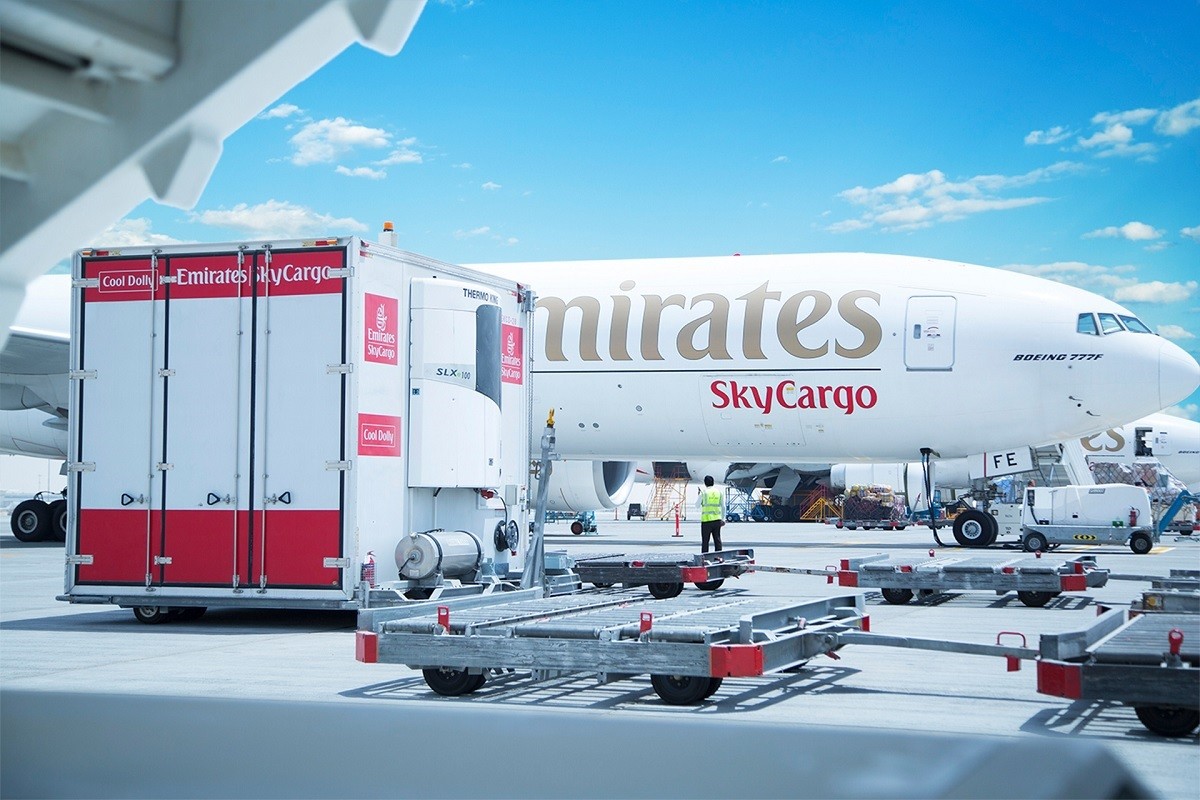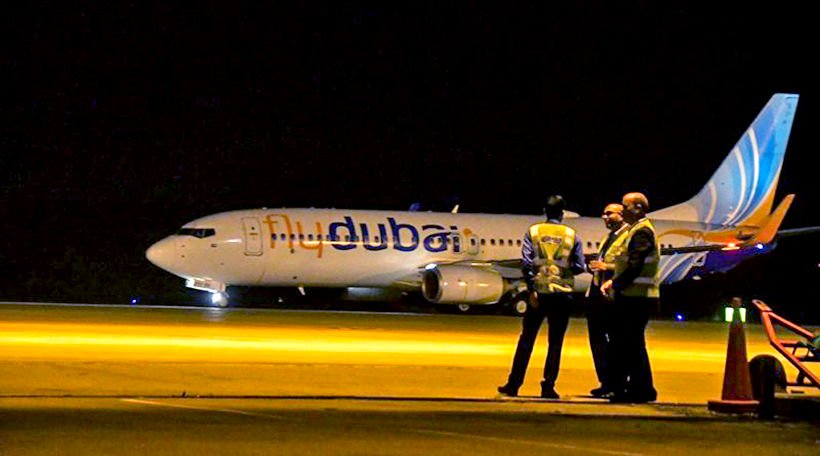Ethiopian Airlines had up to 68 international passenger flights across Africa departing from its Addis Ababa (ADD) hub on some days this summer, however the average is 64 daily as of January 27th. Data from the OAG indicates that it has never had as many as 68. The Star Alliance member’s increased aircraft capacity on numerous routes and delinking of specific African destinations have contributed to its record-breaking number. Here is its full-day international intra-Africa itinerary for a randomly chosen July 21, 2023, so you can see how it works.
The best way of thinking about these four flights is that they are effectively, if not actually, the last of the departures across Africa from the day before. They fit into that departure bank. They are all relatively close to Addis and arrive back in ADD at 04:45-07:30, mainly enabling passengers to connect elsewhere in Africa and to the Middle East and China.
July 21st: midnight to 07:59
00:10: ET827, Dar es Salaam; 737-800
01:00: ET366, Djibouti; 737-700
01:00: ET316, Asmara; 737-700
01:10: ET343, Khartoum; 737-800
July 21st: busiest period, part one
Fed by flights from across North America, Europe, Middle East, Asia, and other parts of Africa, 08:00-11:30 is Ethiopian Airlines’ primary intra-Africa departure bank of the day. It has 45 departures or over two-thirds of its total. Over half (56%) are by widebodies, such is the passenger and freight demand at this time. It is also a good way of increasing the utilization of widebodies in-between long-haul intercontinental services, especially for the newer types.
To make it more digestible, I’ve broken them into two parts: 08:00-09:15 and 09:16-11:30. Here’s the first:
08:00: ET318, Nairobi; 737 MAX 8
08:30: ET829, Victoria Falls (continues to Bulawayo); 737 MAX 8
08:30: ET332, Entebbe; 737 MAX 8
08:35: ET835, Windhoek; 787-9
08:35: ET835, Gaborone; 737 MAX 8
08:40: ET809, Johannesburg; A350-900
08:40: ET931, Enugu; 737 MAX 8
08:40: ET917, Cotonou; 737 MAX 8
08:40: ET921, Accra; A350-900
08:45: ET508, Lomé (continues to Newark); 787-8
08:45: ET861, Brazzaville (continues to Pointe-Noire); 787-8
08:50: ET853, Antananarivo; 777-200LR
08:55: ET819, Maputo; 787-9
08:55: ET376, Mogadishu; 737-800
08:55: ET352, Juba; 737-700
09:00: ET322, Mombasa; 737-800
09:00: ET901, Lagos; 777-300ER
09:00: ET925, Libreville (continues to Yaoundé); 787-9
09:00: ET913, Douala (continues to Malabo); 787-8
09:00: ET847, Cape Town; A350-900
09:05: ET875, Ndola (continues to Blantyre); 737 MAX 8
09:15: ET368, Garowe (continues to Bosaso); Dash-8-Q400
July 21st: busiest period, part two
Most flights that leave 08:00-11:30 arrive back in Addis Ababa in the late evening, feeding services going to North America, Europe, Middle East, Asia, and other parts of Africa. However, the longest to West Africa (e.g., to Bamako and onto Dakar), shown in this ‘part two,’ remain overnight to return the next day to feed the critical intercontinental flights. In contrast, the shorter routes return in the afternoon, helping to beef up Ethiopian Airlines’ developing third wave.
Here’s the second part of the busiest period:
09:20: ET951, Abuja; A350-900
09:25: ET863, Lusaka; A350-900
09:25: ET873, Harare; A350-900
09:30: ET879, Seychelles; 737 MAX 8
09:30: ET362, Djibouti; 737-700
09:30: ET372, Hargeisa; 737-800
09:40: ET851, Luanda; 777-200LR
09:45: ET344, Khartoum; 737-800
09:50: ET877, Lilongwe; 787-8
09:50: ET312, Asmara; 737-800
10:00: ET825, Moroni; A350-900
10:00: ET841, Kinshasa; A350-900
10:05: ET939; N’Djamena; MAX 8
10:20: ET813, Zanzibar; A350-900
10:30: ET937, Niamey (continues to Ouagadougou); 787-8
10:35: ET815, Kilimanjaro; A350-900
10:35: ET935, Abidjan (continues to Conakry; 787-8
10:40: ET909, Bamako (continues to Dakar); 787-9
10:45: ET831, Goma; 737-700
10:45: ET805, Dar es Salaam; 737 MAX 8
10:50: ET871, Lubumbashi; 777-200LR
11:30: ET807, Kigali; 737-800
11:30: ET811, Bujumbura; 737 MAX 8
12:00 to 23:59
Most of the remaining 11h 59m of the day is very quiet, with no departures between 17:01 and 21:34. As you can see, the mid-afternoon third wave is growing in importance; it’ll be much busier in a few years. Most of the flights (except Johannesburg) return in the mid-evening, thereby feeding onward intercontinental flights. The evening departures are fed by arrivals from across the vast continent and return the following morning, feeding Ethiopian’s full African and non-African network.
14:15: ET378, Mogadishu; 737-800
14:35: ET354, Juba; Dash-8-Q400
15:20: ET374, Hargeisa; 737-800
15:30: ET342, Mombasa; 737-800
15:30: ET849, Johannesburg; A350-900
15:45: ET334, Entebbe; 737-800
15:45: ET314, Asmara; 737-800
15:55: ET364, Djibouti (via Dire Dawa outbound); 737-700
16:00: ET306, Nairobi; 737 MAX 8
16:00: ET346, Khartoum; 737-800
17:00: ET929, Accra; 737 MAX 8
21:35: ET843, Kinshasa; 737-800
22:00: ET893, Harare; 737-800
22:05: ET452, Cairo; 777-200LR
22:10: ET891, Lusaka; 737-800
22:45: ET821, Kigali; 737-800
22:45: ET338, Entebbe; 737 MAX 8
23:15: ET308, Nairobi; 737 MAX 8
23:30: ET859, Johannesburg; 787-9
About Guide2Uganda
Guide2Uganda (www.guide2uganda.ug) is the most comprehensive source of travel information about Uganda that exists on the web, with more content on its cities & towns, accommodation, attractions, events, museums and galleries than any other online guide that currently exists for Uganda; as well as being a dynamic travel news and events driven site with fresh content added daily.
According to WeFollow & Peer Index (that measure online influence), we are among the most influential online media organizations in Uganda. Guide2Uganda was also awarded ‘’Best Destination Website in Uganda’’ by Jumia Travel Uganda in the 2018 Africa Travel Awards.
Share your travel stories & photos with the world via email: info@guide2uganda.ug




